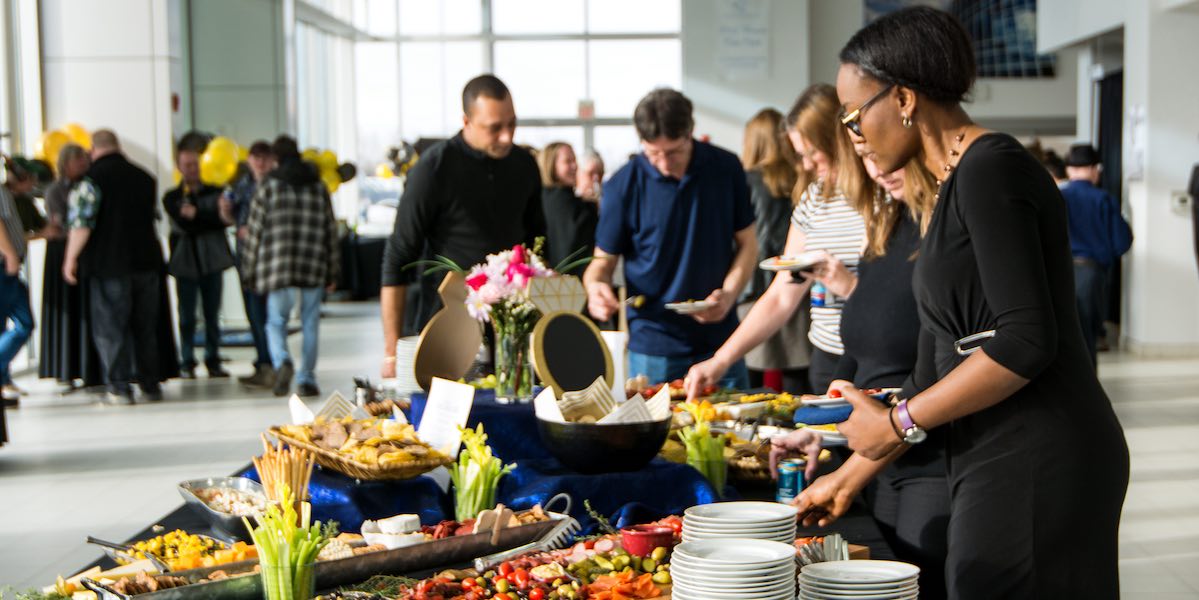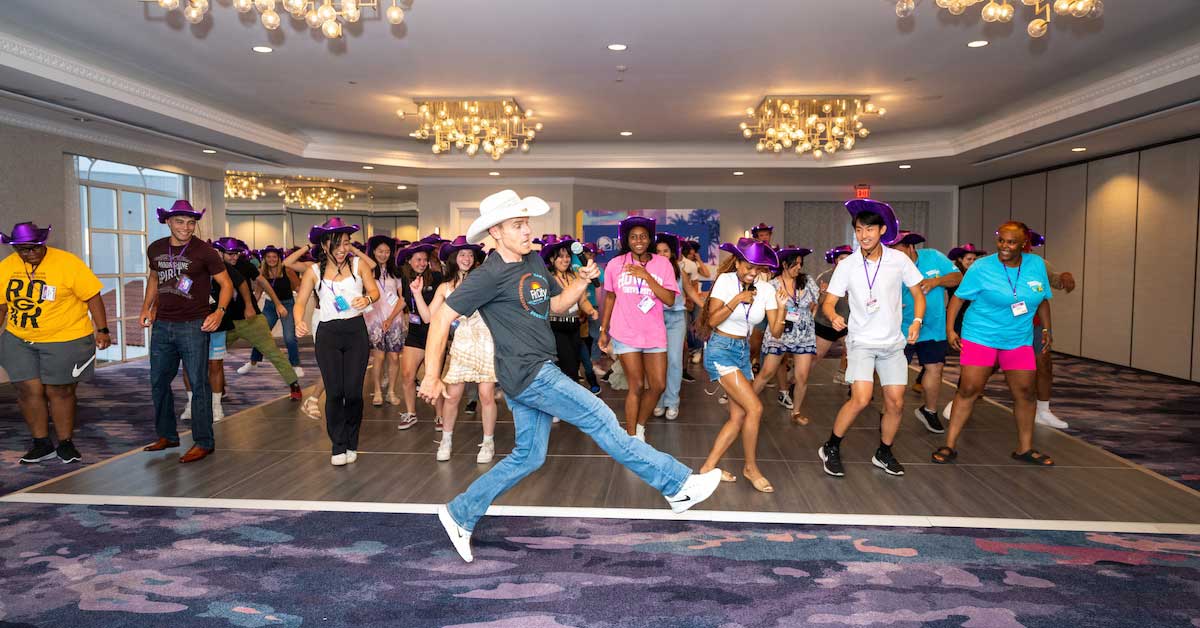Nancy Snowden is a brain-science fanatic who specifically loves cognitive development theory. For her, it encapsulates an exciting aspect of the human brain: it evolves.
“We aren’t born knowing everything, and we also don’t age knowing nothing at all. Our brains grow and expand, and change based on what we learn and, more importantly, how we learn,” Snowden says. “Working in the professional development world, it means there are endless ways to consider how educators can impact others and effectively help to create change in the world, all because of the brain.”

Snowden is MPI’s lead manager of educational experiences. She spent a decade working in higher education and the wellness sector before joining MPI. Her previous work experience prepared her well for a career in the meeting industry.
“What is interesting about both industries is they thrive on the fact that you must convene in some form (physically or digitally) to learn, and both education and wellness are directly impacted by the events and experiences we take part in daily,” Snowden says. “Be it a college course, a MOOC (massively open online course), a Peloton class or even a hobby convention, they all ultimately culminate in an event in one form or another.”
Finding solutions through play
One exciting event Snowden will lead at IMEX America in October is called “On the Playground: Your IMEX America Unkeynote Experience.”
During the World Education Congress (WEC) in San Francisco in June, the MPI Academy experimented with several unique and engaging activities that helped attendees boost their learning capabilities, solve problems and generate practical answers to questions in their professional lives. One of these activities was The Playground, a solution-room experience that used the power of play to lead to new perspectives and creative solutions to serious meeting and event challenges.
During IMEX America, The Playground will be live on the trade show floor. There, attendees can tackle proposed problems or bring their own to solve, all filtered through a variety of games.
“The games are curated according to skill,” Snowden says. “For example, let’s say we are going to create solutions that relate to designing hybrid event experiences. One of the lenses participants might consider using to help work through possible solutions is project/people management, which is one of the skills aligned with organizational Jenga.”
“It just goes to show that even the most simplistic games can have impactful outcomes on how a participant learns.”
Using Jenga blocks with whiteboard labels, Snowden says, attendees can build their organizational structure as it relates to executing a hybrid event and work to strategically add or remove key players to see if they can keep the tower (event) from collapsing. And why Jenga?
“Because looking back at the last two years, one of the most important aspects of a successful hybrid event that has surfaced is staffing models! You must have enough people to make what is, practically speaking, two events happening simultaneously,” Snowden says. “Rather than getting caught up in the buzzwords and minutia surrounding hybrid event strategies, players get to hone in on this specific skill and think about it as it directly relates to their own organization.”
Snowden likes using Jenga in The Playground because of its many sensory elements.
“But I also love some of the more reserved experiences—tic-tac-toe, for instance, is often seen as a benign way to pass time on a road trip or while waiting for dinner at a restaurant,” she says. “However, when you create a learning experience around it, suddenly you start to question the rules of engagement.”
The heartbeat of the global business events community. Learn more about IMEX America, Oct. 11-13.
For example, Snowden says that at WEC, one participant in the middle of a game had the sudden realization that while she and her colleague had both read the instructions, they had each interpreted them differently but had never convened and discussed what they had read.
The result was that their action, though meant to benefit each other as teammates, worked against them. The lapse in communication ensured they weren’t on the same page.
“It was a fantastic ‘ah-ha’ moment when they realized this, and it made them rethink their entire strategy,” Snowden says. “It just goes to show that even the most simplistic games can have impactful outcomes on how a participant learns.”
Unlocking cognitive skills
Engaging in play is important, Snowden says, because we are wired to lead with rational thought first. Often in the business world, people are too caught up in the reasons why something can’t happen.
“However, when we engage in play, we unlock a wide range of cognitive skills,” she says. “It is why recess and play-based learning is so fundamental to primary school education. It’s how we start to engage the mind in complex thought. It’s when we grow up that we relegate play to the back burner.”
Playing, then, just may be the tool meeting and event professionals need to help them move forward with clearer thinking.
“A complex problem does not always need a complex answer. In fact, sometimes the simplest answer is the best one,” Snowden says. “So, when examining the many challenges confronting event professionals every day, how can we focus on the simplest solution to achieve our goals and objectives? If you are feeling stumped, crack open that dusty Jenga set or deck of cards, and you might just play your way into the best solution yet.”



.jpeg?sfvrsn=96553155_2)



